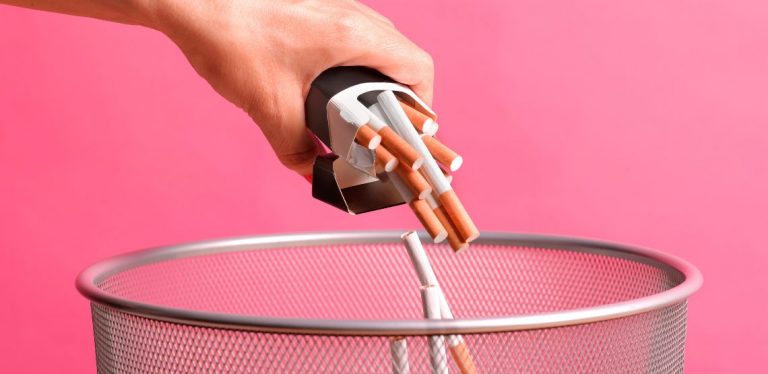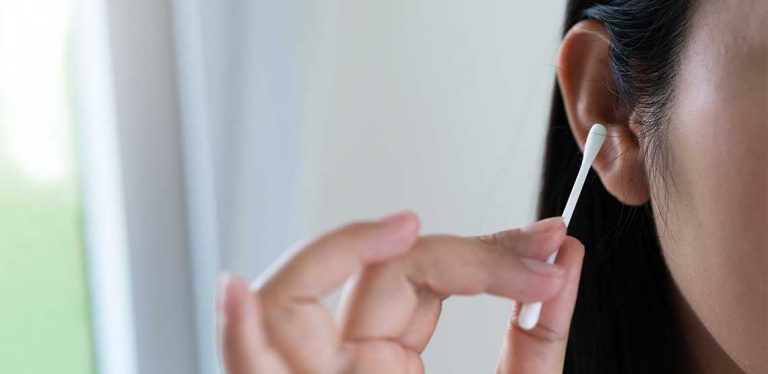What Happens When You Quit Smoking?
It's hard to quit smoking, so in this article we're covering tips to help you kick that habit. Quitting can be one of the best things that you can do for your long-term health. Once you quit, your risk of developing complications such as heart disease, stroke, and lung cancer drops dramatically.
However, quitting can be difficult and sometimes feel like an impossible task. I know when I quit smoking in 2011, it took several tries before it stuck, but now ten years later, I'm glad I didn't give up.
Studies suggest that it can take anywhere from three to 30 attempts before you quit successfully. The important thing is that you don't give up! There are different methods of quitting that will have different success rates for different people, so keep trying until you find the method that works best for you.
Today, I'm going to share with you what happens to your body when you quit smoking, some potential side effects you can experience, and how you can deal with them. If you know what to expect when you quit, you can be prepared and set yourself up to quit successfully!
What Are Some Side Effects of Quitting Smoking?
When you quit smoking, it is common for the body to experience withdrawal symptoms. These symptoms are often caused by the body's response to the loss of nicotine you have been getting from your cigarettes. Nicotine is a drug that helps your body feel calm and alert through its impact on your brain.
When you smoke, you give your body consistent hits of this calming substance. Your body comes to rely on having a certain level circulating in your system at any given time. Withdrawal symptoms begin when the levels drop below what your body expects, causing you to reach for a cigarette to lift them.
The most common withdrawal symptoms that you will experience may include:
- Intense cravings for nicotine
- Increased anger, frustration, or irritability
- Anxiety or depression
- Dizziness
- Intense dreams
- Headaches
- Weight gain
- Constipation
These symptoms will be the most intense in the first week after you quit, but they become much less intense as time passes and can eventually disappear. One of the most successful ways to deal with withdrawal symptoms is to use nicotine replacement therapy (NRT) in the form of either slow-release patches, sprays, inhalers, lozenges, or nicotine gum.
This therapy helps your body slowly reduce the amount of nicotine it relies on and keeps the withdrawal symptoms from becoming so overwhelming that you give up altogether. I had incredible success using the nicotine patch when I was quitting. There are different levels that you can choose from to help you wean off nicotine. Studies have shown that people who use NRT are 50-70% more likely to succeed in quitting than those who quit without any support.
To help manage constipation, you will want to drink lots of water and increase your fiber intake. Some people turn to food to help with their cravings, so you may want to work with a nutritionist or dietitian to find ways to nourish your body and soothe your cravings.
Related Search Topics (Ads)
What Can You Do to Improve Your Chances of Success?
As someone who has successfully quit smoking, I can tell you that the nicotine replacement therapy helped immensely with the cravings. Still, it wasn't the only piece of the process. I also had to find new ways to help manage my stress and anxiety, especially when my first reaction would have been to reach for a cigarette.
It's important to figure out what might trigger a cigarette craving in you, such as different moods, times of day, routines, and boredom. If you know what your triggers are, then you can figure out ways to adapt to them. Maybe you will need to avoid certain situations altogether. Or you can build new routines or find ways to distract yourself when you get hit by cravings. There is no one way that is going to work for everyone, but getting honest about your triggers can help you devise a plan of action for when they arise.
Luckily, cravings generally don't last a very long time, and you can do a few things to help manage them. Some people find breathing exercises helpful, while others may require medications from their doctor. Chewing on crunchy foods such as carrots, apples, pickles, celery, hard candies, or gum can help keep your mouth busy and possibly decrease that psychological craving to smoke.
Finally, it may be helpful to see a counselor who can help you work through your emotional or psychological connections to smoking. Sometimes it is not even the physical act that we miss when we quit, but the emotional attachment. If this area is something you struggle with, don't hesitate to reach out to a qualified smoking cessation counselor, as this can help improve your chances for success.
Click here if you want more tips to help you quit.
What Happens to Your Body When You Quit Smoking
I know it seems like the odds are against you when it comes to quitting smoking, but the benefits to your body when you quit are so powerful that it's worth sticking it out.
You can start to see benefits from quitting in as little as twenty minutes after your last cigarette as your heart rate and blood pressure drop. Within eight hours of quitting, oxygen levels in your blood return to normal, and you can cut the amount of nicotine and carbon monoxide in your body by more than half.
After a full day without cigarettes, carbon monoxide, a poisonous gas, is cleared from your body. Your lungs start to work on clearing out smoking debris and mucus that has built up to protect them from the smoke.
Within two days of quitting, the nicotine is cleared from your body, and you start to be able to taste and smell better. After three days, the bronchial tubes in your lungs begin to relax, and you will find yourself being able to breathe better. Your energy levels might start to increase too!
In the first three months after quitting, you will notice an improvement in your circulation, making physical activity much easier. And after those first three months, your lung function improves by up to 10%, which can help coughs, breathing problems, and wheezing.
Incredibly, in just one year after quitting smoking, your risk of experiencing a heart attack is cut in half! Ten years after quitting, your risk of heart attack falls to the same level as someone who has never smoked, and your risk of lung cancer falls by half.
Add these incredible benefits to brighter skin, whiter teeth, improved fertility, and healthier hair, and it can be super motivating to quit. You'll also smell better.
Another benefit is the money you will save. There are some great apps that can track how much you save by quitting smoking to help encourage you to stick with it and to celebrate your win!
The important thing about quitting is to find the support you need and a method that works for you so that you can reap all the benefits of a smoke-free life. I know you can do it!
Article Resources
- NicoDerm (NICOTINE WITHDRAWAL SYMPTOMS: HOW NICOTINE REPLACEMENT THERAPY CAN HELP)
- Nicorette (Quit Smoking Tips)
- Research Gate (Estimating the number of quit attempts it takes to quit smoking successfully in a longitudinal cohort of smokers)
- iCanQuit (Quitting Methods)
- National Cancer Institute (How To Handle Withdrawal Symptoms and Triggers When You Decide To Quit Smoking)

